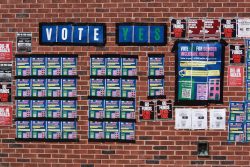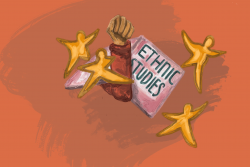Gender equality, respect for the LGBTQ community, and racial diversity are all common topics of discussion at Georgetown. But most students remain unaware of another movement on campus—neurodiversity, a philosophy that acknowledges neurodevelopmental differences, such as developmental, cognitive, learning, or behavioral disabilities, as a normal part of the human experience. Although this mindset is beginning to take hold on campus, students and the administration alike can do more to ensure that those with mental abilities different from the stereotypical norm are comfortable and welcome on campus. The admissions office should also actively recruit these individuals to encourage a wide range of perspectives and experiences in the Georgetown community.
Last fall, as part of the diversABILITY forum, the Department of Performing Arts sponsored Visible Impact, a show focusing on the deaf and “disabled.” During the event, deaf Georgetown student Heather Artinian (COL ‘15) said “If you say ‘disabled,’ you usually mean that the person is unable to function like normal. Deaf people are normal…we just have a different way of viewing life.”
Similarly, people with different mental capabilities are not necessarily disabled. Judgments of their capabilities should rest on the same requirements as any other person, and not the label assigned to them. “Neurodiversity is important in the academic environment because its perspective on issues about disability are profoundly different [from] a purely medical perspective, or a perspective that urges pity and insists on fixing or curing,” Lydia Brown (COL ‘15) an advocate for autism understanding, who has autism herself, wrote in an email. “[It] is about empowering and uniting the people labeled neurodiverse, and deserves discussion and critical analysis in the university environment.”
Brown hopes one day Georgetown will have a Disability Culture Center, like the LGBTQ center. “Acceptance requires that the neurodiverse are fully included and welcomed as members of the community,” she wrote. “If engaged more now and into the future, we can become leaders in spearheading discussion about the topics and issues that affect us.”
Such a University-sponsored center would be an important step, but much rests on a change in campus social interactions as well. Too often, individuals considered mentally handicapped are socially isolated on our campus. Students considered “normal” often group according to mental labels, just as we continue to separate ourselves based on race or social class. It is not only up to the administration, but also to individual students to break down boundaries on campus based on mental distinctions. Diverse mental abilities have as much to offer our Georgetown community as diverse ethnic or geographic origins, and the sooner we all realize this, the more complete, productive, and inspirational our college experience will be.




